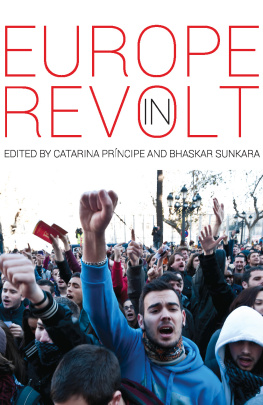
The Syriza Wave
The Syriza Wave
Surging and Crashing with the Greek Left
by HELENA SHEEHAN

MONTHLY REVIEW PRESS
New York
Copyright 2016 by Helena Sheehan
All Rights Reserved
Library of Congress Cataloging-in-Publication Data:
available from the publisher
ISBN (paper): 978-158367-625-7
ISBN (cloth): 978-158367-626-4
Typeset in Minion Pro
Monthly Review Press, New York
monthlyreview.org
5 4 3 2 1
Contents
To the Greek left,
who struggled so bravely for so long,
who brought forth Syriza,
who will transcend Syriza
Preface
G reece lived in my imagination long before I ever set foot in it. From a young age, I reached out to the whole. I sought a wider and deeper understanding of the world than what I saw around me. As a teenager, outside the school curriculum, I read the Socratic dialogues and imagined ancient Athens. I studied philosophy in university to the doctoral level. I became a philosopher. I also became a Marxist, which led me to reconceptualize the history of philosophy and reimagine ancient Athens, as I learned how to see ideas in sociohistorical context. As a university teacher, I incited my students to imagine the ancient world in the interactions of intellectual, political, and economic forces that unfolded there and came rippling into our own time. As I walked among ruins during my times in Greece, this history flowed through me again. I channeled that energy back into my teaching of the history of ideas, and my writing focused on class, race, and gender in the history of knowledge.
From 1980, I felt the allure of the Balkans. I accepted an invitation from the Praxis philosophers to come to Yugoslavia. Later I was invited by the ruling party. These were conferencesnot the detached academic kind but the intellectual activist kind. There was intense interaction with others who wanted to understand and to change the world. Not only that, but it was warm and near the sea. These were meaningful and memorable experiences. It was in Cavtat where I first met Paul Sweezy and Harry Magdoff and I began my association with Monthly Review. There were also holidays, mostly in Yugoslavia but sometimes in Bulgaria. My partner, Sam Nolan, and I called these our 4-S holidays: sun, sea, sex, and socialism.
As an organic intellectual, that is, a precariously employed PhD, I combined financing my holidays with making arguments about socialism by writing about my trips for the Irish Times. This pushed me to reach out to penetrate places and engage in conversations I might not have had otherwise. As the tide turned in Eastern Europe, from the German Democratic Republic to Yugoslavia, I wrote about this world-historical change in terms of the big events and arguments as well as the everyday lives of those whose world was being turned upside down. I was interested in history from the point of view of the vanquished. I experimented in synthesizing travelogue and theory.
I turned to Greece when Yugoslavia died. In 1992, Sam and I traveled to Greece, regretting the loss of a crucial S: if we couldnt have socialism, we could still have socialists. I investigated the Greek political spectrum and decided that the position I supported was that of Synaspismos, because it came from the critical communist movement, which corresponded to my own ideological position. Many of its members had belonged to the KKE, the Communist Party of Greece, one of the most formidable communist parties never to take state power. They had left the KKE because of different positions on Eastern Europe and Eurocommunism and also because the KKE, which had been part of Synaspismos as a coalition, had left it.
After 1994, when I finally became a tenured academic, I wasnt as pushed about writing up my holidays for newspapers, but I got most out of the trips when I did that. My last journalism-funded holiday was in 1993, when I wrote Rhodes Diary for the Irish Times, which was also published in Neues Deutschland. I contacted the head office of Synaspismos in Athens to say that I was writing an article about Greece. They put me in touch with Thanasis Anapolitanos, the president of Synaspismos in Rhodes and a civil engineer for the Ministry of Culture who was my primary guide to Rhodes on this and subsequent occasions.
When I dug this article out of my files and read it again, it seemed so long ago. Yet I was struck by the echoes from the past in the present. There was a general strike about privatization of public utilities. The hotel lobby was in darkness, the computers were down, the refrigerators were defrosting, and the elevators were disabled. At the post office and other public buildings there were handmade signs saying We are on strike.
There was an election coming and Thanasis was a Synaspismos candidate. Andreas Papandreou headed the Pasok list in Rhodes. He was the leader of the Panhellenic Socialist Movementwhich was ahead in the polls. Most treated this with a shrug of the shoulders, devoid of the hope and enthusiasm that greeted the victory of Pasok in 1981. Pasok had raised wages, created a national health service, repealed anti-communist laws, initiated many progressive reforms, and pursued an independent foreign policy, but it became mired in corruption and financial scandals, imposed austerity measures, and retreated on foreign policy. Thanasis regretted that Pasok took the best traditions of the left and soiled them. Their scandals discredited socialism. I spoke to Vangelis Pavlidis, a cartoonist for the newspaper To Vima, who had been on the central committee of Pasok but now said he wouldnt even vote for them again. Pasok encompassed so much talent, creativity, and energy, which is now dissipated. I asked where all these people had gone. They went home, he replied. Even the people who stayed in Pasok agreed with much of the critique but said, So what? because they still had enough support to win. Those who were voting for them were doing so as a vote against the conservative New Democracy (ND) party and not because they hoped for much from Pasok anymore. For Pasok, it took several years of real achievements and then reversals for it to come to this. For Syriza, it all unfolded in months.
One thing that was different was that the KKE had seen some promise in Pasok at that time that it subsequently never saw in Syriza. Panos Michailidis, who had spent seventeen years in prison for being a communist, felt disappointed in Pasok. They came to power with a good left program. Some of their policies were to the left of the KKE.
In 2004, Synaspismos coalesced with other forces to form Syriza. On our trips to Crete, Rhodes, Kos, and Corfu we had many discussions of Greek politics across a wide political spectrum, but we felt the greatest affinity with Synaspismos, and then Syriza.
I was interested, then as now, in how Ireland looked from Greece and vice versa. The major story involving Ireland when I was in Greece in 1993 was the perceived inequity in the distribution of European Community (precursor of the EU) structural funds. It was noted that Ireland received 1,049 European currency units (precursor of the euro) per citizen, whereas the figure for Greece was only 667 ECUs in the period from 1989 to 1993.
The comparisons and contrasts between Greece and Ireland came to my attention again under the impact of the global economic crisis that began in 2008 and intensified in Europe in 2010. Private debts were transmuted into public debts, leading to drastic expropriating measures and the plundering of public services to pay private investors. To bail out the states doing so and enforce austerity, the troikathe International Monetary Fund, the European Union, and the European Central Bankcame first to Greece and then to Ireland. These years demanded intensified political activity in Ireland and renewed focus on Greece.
Next page












